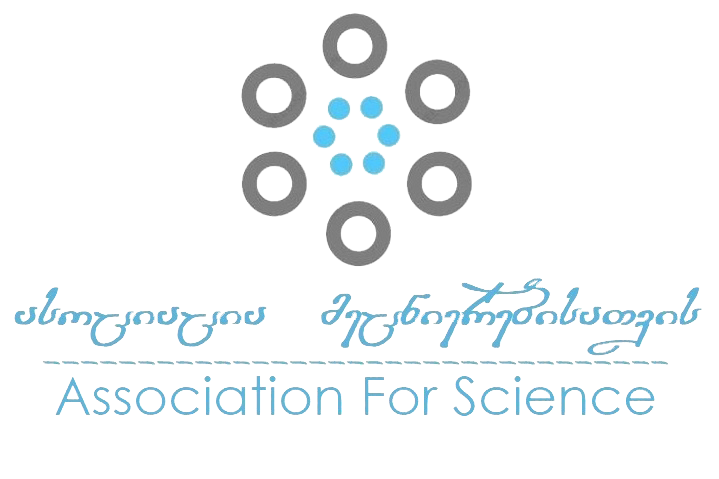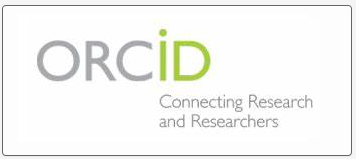A VALUABLE BOOK ABOUT GEORGIAN-BALTIC RELATIONS
DOI:
https://doi.org/10.52340/isj.2024.29.07Abstract
The collapse of the post-Soviet and post-socialist space entailed significant positive geopolitical changes. The Baltic States - Latvia, Lithuania and Estonia, along with Georgia, having gone through a difficult path of development, were among the first to join the European family, the states and peoples of the Baltics demonstrated their unity and purposefulness to the world community, which was recognized by the European community. The importance of studying the history of Georgia's relations with the Baltic States is also connected with the fact that in the modern world the new states of the Baltic States have achieved certain successes in international relations and acquired their significance. A comprehensive study of the history of the Baltic States and their relations with Georgia in the context of general international politics from the Middle Ages to modern times seems relevant from both historical and political points of view. It was in the context of the above-mentioned importance of the Baltic States for Georgia that the Georgian historian Nikolai (Niko) Javakhishvili studied the stages of Georgia's relations with the Baltic States. As a result of his research, N. Javakhishvili published a book. The book by N. Javakhishvili gives an idea of the author of the study as a trained, qualified specialist, capable of solving complex scientific problems. The author's architecture, logical and historical "pattern" of the declared scientific study in the book is determined by the wide potential of applicability due to its universality and variability. Nikolay (Niko) Javakhishvili is a representative of the new generation of Georgian historians. He is well known in scientific circles and the public not only in Georgia, but also abroad. Nikolay (Niko) Javakhishvili is a doctor of historical sciences, professor at the Ivane Javakhishvili Tbilisi State University. He is the author of many fundamental studies on the history of Georgia and the Caucasus. It should be noted that at a relatively young age he studied two auxiliary historical disciplines in monographs: “Georgian Phaleristics (Award Studies)” (Tbilisi, 1995) and “Georgian Bonistics” (Tbilisi, 1996). Thus, he initiated the study of these disciplines in Georgia. After the publication of these monographs, he put a lot of effort into studying the issues of Georgian phaleristics and Georgian bonistics and published essays “The Order of Queen Tamar” (Tbilisi, 1998) in Georgian and German, which are dedicated to the history of the German-Georgian military-political alliance during the First and Second World Wars; “Rewarding in Ancient Georgia” (Tbilisi, 1998), “Bonnies of the Democratic Republic of Georgia (1919-1921)” (Tbilisi, 1998). With his co-authorship, the catalogue “Money in Georgia” (Tbilisi, 2003) was published in Georgian and English. One of the important areas of scientific interest of N. Javakhishvili is the study of Georgian-Baltic relations. He has devoted more than 20 publications to the study of these issues. In 2011, the publishing house of Tbilisi State University published N. Javakhishvili's monograph "Essays on the History of Georgian-Baltic Relations" (in Georgian). The presentation of the book took place in 2013 in Latvia and the author's work received high praise. After this book was published in Georgian, publishing the book in foreign languages became an issue. Finally, with the financial support of the Ministry of Culture of Latvia, this book was published in Latvian in Riga in 2015. Intensive work was also carried out on the Russian version, which was published under the auspices of the Latvian Academy of Sciences and the Institute of Latvian History of the University of Latvia. The very fact that such attention was paid to the book by the state and scientific circles of Latvia speaks of its significance. It is no coincidence that N. Javakhishvili was elected an honorary doctor of the Latvian Academy of Sciences in 2014. It should be noted that he is the youngest honorary doctor of the Latvian Academy of Sciences. The book opens with a preface by the then rector of Tbilisi State University, academician of the Georgian Academy of Sciences Vladimir Papava, where he warmly speaks of the book and its author. Then follows the author's introduction, where he briefly characterizes the Georgian-Baltic relations and expresses gratitude to everyone who contributed to the creation of the book. The monograph itself consists of three chapters, an impressive list of used sources and literature is attached, and the appendices include documents testifying to the Georgian-Baltic relations, reviews and reviews of the book by N. Javakhishvili, and an index of names is also attached, which is especially important for this kind of book. The book is the first attempt at a monographic study of the history of relations between Georgia and the Baltic countries – Lithuania, Latvia and Estonia from the 9th-10th centuries, when the first contacts, proven by coin circulation, were outlined, and up to the present day. These relations had and have a multifaceted character – trade and economic, cultural, military and political, etc. The first chapter – “Georgian-Baltic relations from the 9th to the end of the 18th centuries” tells about the beginning of Georgian-Baltic relations. Coins minted in Tbilisi in the 9th-10th centuries were found in the Baltic countries, which testifies to trade and economic ties between Georgia and the Baltics. The next fact from the history of Georgian-Baltic relations refers to the end of the 15th century. In 1494, the King of Kartli Constantine II (1478-1505) sent an ambassador, Hieromonk Kir-Nil, to Spain and Rome. He accompanied the Spanish ambassador who visited the Kingdom of Kartli. The ambassadors sailed across the Black Sea, went up the Dnieper River and through the possessions of Lithuania and Poland went to Spain. The importance of N. Javakhishvili's book for historians is difficult to overestimate. The book gives a clear and comprehensive idea of the dynamics of the development of Georgia's relations with the Baltic countries, and allows us to evaluate the achievements of the past. We believe that N. Javakhishvili's book "Essays on the History of Georgian-Baltic Relations" can serve as a basis for further research into the rich Georgian-Baltic relations, and we are also confident that N. Javakhishvili's work will become a reference book for historians and specialists in international relations.









